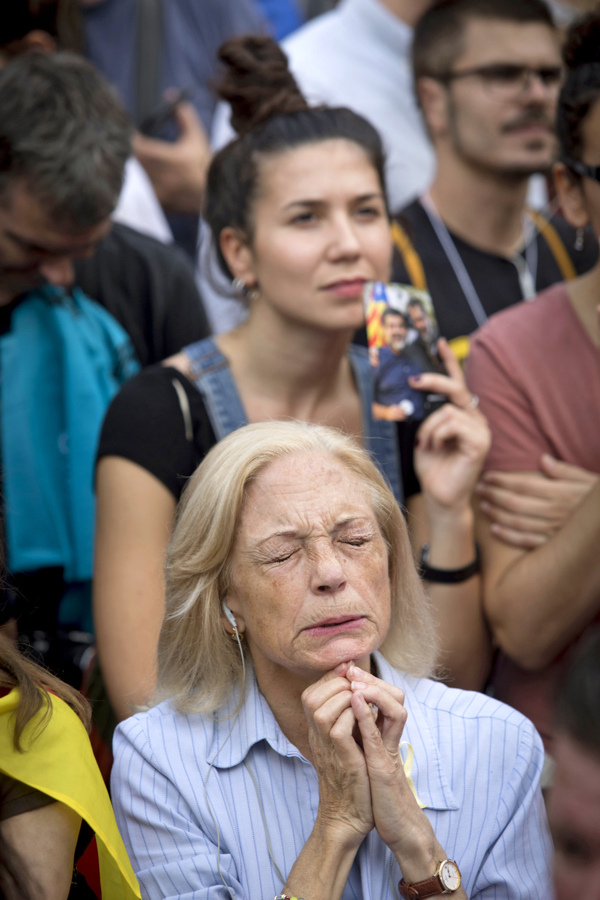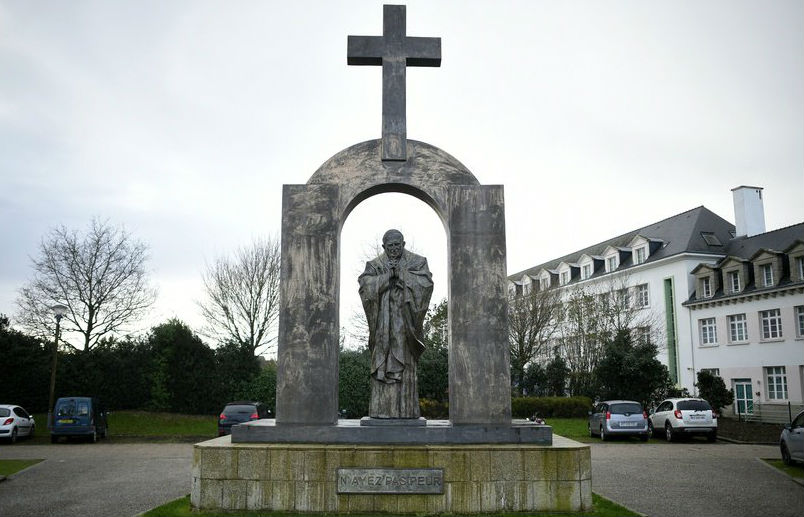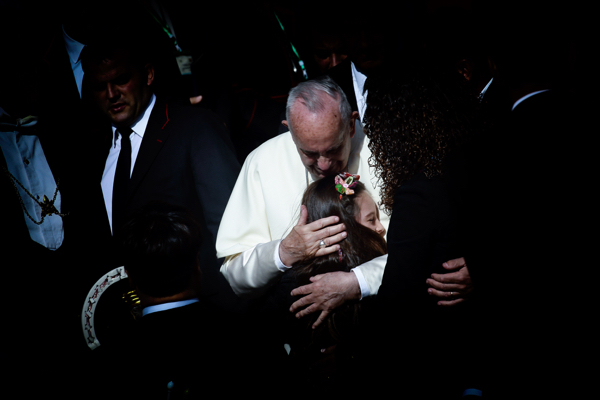Pope Francis has called on Christians to "revitalise" a Europe where new generations have been betrayed, people have been denied the "right to be born" and the primary goal is no longer the "common good".
The Pope said: "What is our responsibility at a time when the face of Europe is increasingly distinguished by a plurality of cultures and religions, while for many people Christianity is regarded as a thing of the past, both alien and irrelevant?"
Speaking at the Vatican conference (Re)Thinking Europe, he regretted how politics is becoming "a forum for clashes between opposing forces" where dialogue is replaced by shouted claims and demands.
"One often has the feeling that the primary goal is no longer the common good, and this perception is shared by more and more citizens. Extremist and populist groups are finding fertile ground in many countries; they make protest the heart of their political message, without offering the alternative of a constructive political project.
"Dialogue is replaced either by a futile antagonism that can even threaten civil coexistence, or by the domination of a single political power that constrains and obstructs a true experience of democracy. In the one, bridges are burned; in the other, walls are erected. And Europe is experiencing both."
Pope Francis said: “Christians are called to revitalise Europe and to revive its conscience, not by occupying spaces, but by generating processes capable of awakening new energies in society.”

A woman at a demonstration in Catalonia is deep in prayer after the Catalan regional Parliament declared independence from Spain in Barcelona, on October 27. Photo by Nadeu/Almagro/ABACAPRESS.COM
He spoke as the Catalan crisis continued to escalate, with demonstrations in Catalonia over the weekend by many thousands who do not wish for independence from Spain.
Earlier, at the same conference, a senior European Union politician warned about the dangers that Brexit poses to the border between Ireland and Northern Ireland.
Mairead McGuinness, vice-president of the European Parliament, described as “frightening” a possibility of returning to a time when the border was the focal point of religious tensions and violence.
“There are real concerns that if there is no negotiated agreement and a focus to protect the peace process and to have no hard borders that the idea of going back to a place that I remember in my childhood is just frightening,” she said.
“But even without physical structures on the border, if we have a hard Brexit there are impacts for business on the island of Ireland, there are impacts of our business going through the United Kingdom. So there are real economic, social, psychological impacts.”
Pope Francis is due to travel to Ireland next year to attend the World Meeting of Families in Dublin and he’s also expected to travel to Northern Ireland. Tensions in the north have been exacerbated by Brexit and means the Pope’s visit becomes politically sensitive given the history of division between Catholics and Protestants. It meant that when Pope John Paul II visited Ireland in 1979 he was unable to travel north of the border.
McGuinness, who is an MEP for an Irish constituency which borders Northern Ireland, says that Francis’ presence in Ireland is “very important” and hoped that he will say “something profound to all communities that will make a difference.”
“I’ve been imploring my UK colleagues to understand that the psychology of Brexit has already begun to polarise communities in the north that had begun to not quite creep together, but make tiny steps towards better understanding,” she said. “They are now more polarised.”
The Vatican conference titled (Re)Thinking Europe is aiming at fostering dialogue within the continent while looking to the future.
The Holy See was a strong supporter of the European project during its early stages with Pius XII ordering church bells to ring in the Eternal City after the signing of the Treaty of Rome, which established the European Economic Community.
In recent years, a view inside the Vatican has developed that the European Union has forgotten its Christian roots, a row which came to the fore during John Paul II’s papacy when a proposed European constitution did not mention Christianity.
But the European have establishment has shown itself willing to listen Pope Francis – the first non-European Pope – on some of the major crises facing the continent, such as the influx of refugees. And last year the Pope was awarded the the prestigious Charlemagne prize for promoting European unity.
Follow The Tablet on Twitter and comment on this or other stories on our Facebook page.



 Loading ...
Loading ...